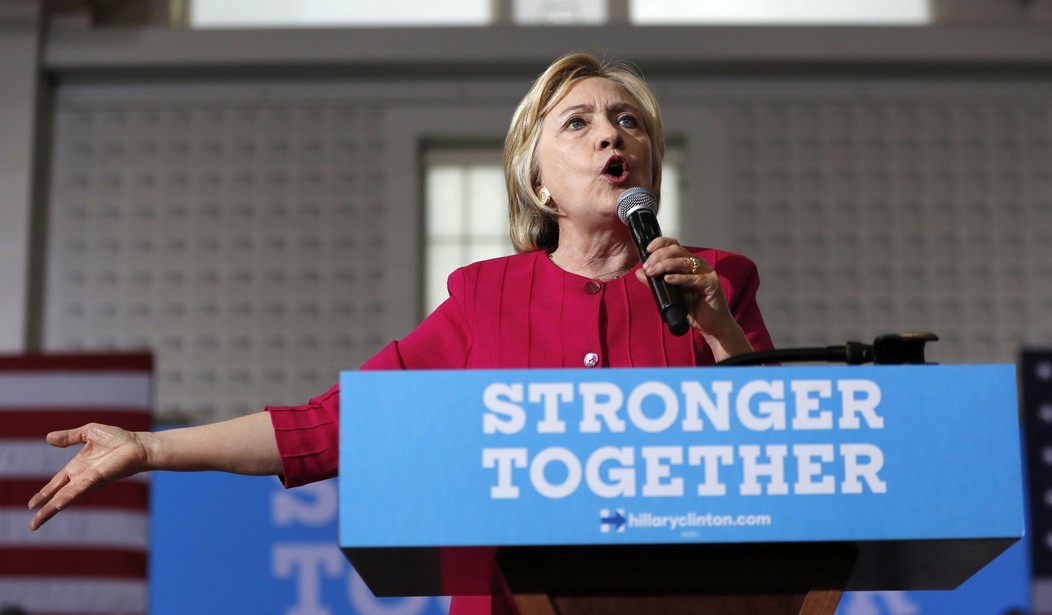The Associated Press is reporting that many of the non-government people who met with Hillary Clinton while she was secretary of State donated money to the Clinton Foundation either personally or through companies or groups. Such a high proportion, the AP notes, is “extraordinary” and indicative of “ethics challenges” ahead for Mrs. Clinton if she is elected president, but not necessarily clear evidence of the type of “pay to play” corruption of which she’s been accused.
The AP’s review of State Department calendars found that “at least 85 of 154 people from private interests who met or had phone conversations scheduled with Clinton while she led the State Department donated to her family charity or pledged commitments to its international programs.”
Combined, the 85 donors contributed as much as $156 million. At least 40 donated more than $100,000 each, and 20 gave more than $1 million.
Donors who were granted time with Clinton included an internationally known economist who asked for her help as the Bangladesh government pressured him to resign from a nonprofit bank he ran; a Wall Street executive who sought Clinton’s help with a visa problem and Estee Lauder executives who were listed as meeting with Clinton while her department worked with the firm’s corporate charity to counter gender-based violence in South Africa.
The meetings between the Democratic presidential nominee and foundation donors do not appear to violate legal agreements Clinton and former president Bill Clinton signed before she joined the State Department in 2009. But the frequency of the overlaps shows the intermingling of access and donations, and fuels perceptions that giving the foundation money was a price of admission for face time with Clinton. Her calendars and emails released as recently as this week describe scores of contacts she and her top aides had with foundation donors.
The AP’s findings represent the first systematic effort to calculate the scope of the intersecting interests of Clinton foundation donors and people who met personally with Clinton or spoke to her by phone about their needs.
The 154 did not include U.S. federal employees or foreign government representatives. Clinton met with representatives of at least 16 foreign governments that donated as much as $170 million to the Clinton charity, but they were not included in AP’s calculations because such meetings would presumably have been part of her diplomatic duties.
Last week, the Clinton Foundation moved to head off ethics concerns about future donations by announcing changes planned if Clinton is elected.
On Monday, Bill Clinton said in a statement that if his wife were to win, he would step down from the foundation’s board and stop all fundraising for it. The foundation would also accept donations only from U.S. citizens and what it described as independent philanthropies, while no longer taking gifts from foreign groups, U.S. companies or corporate charities. Clinton said the foundation would no longer hold annual meetings of its international aid program, the Clinton Global Initiative, and it would spin off its foreign-based programs to other charities.
The AP’s Stephen Braun said that their analysis raises questions about access and what kind of ethical structures and rules Clinton would put in place as president in order to satisfy the American people’s expectations of transparency.
Donald Trump, meanwhile, said today that as president, he would appoint a special prosecutor to investigate the Clinton Foundation, calling it “the most corrupt enterprise in political history.” Trump said that because the FBI and the DOJ “whitewashed Clinton’s email crimes,” they cannot be trusted to impartially investigate the charity.
Watch the video on the next page:









Join the conversation as a VIP Member